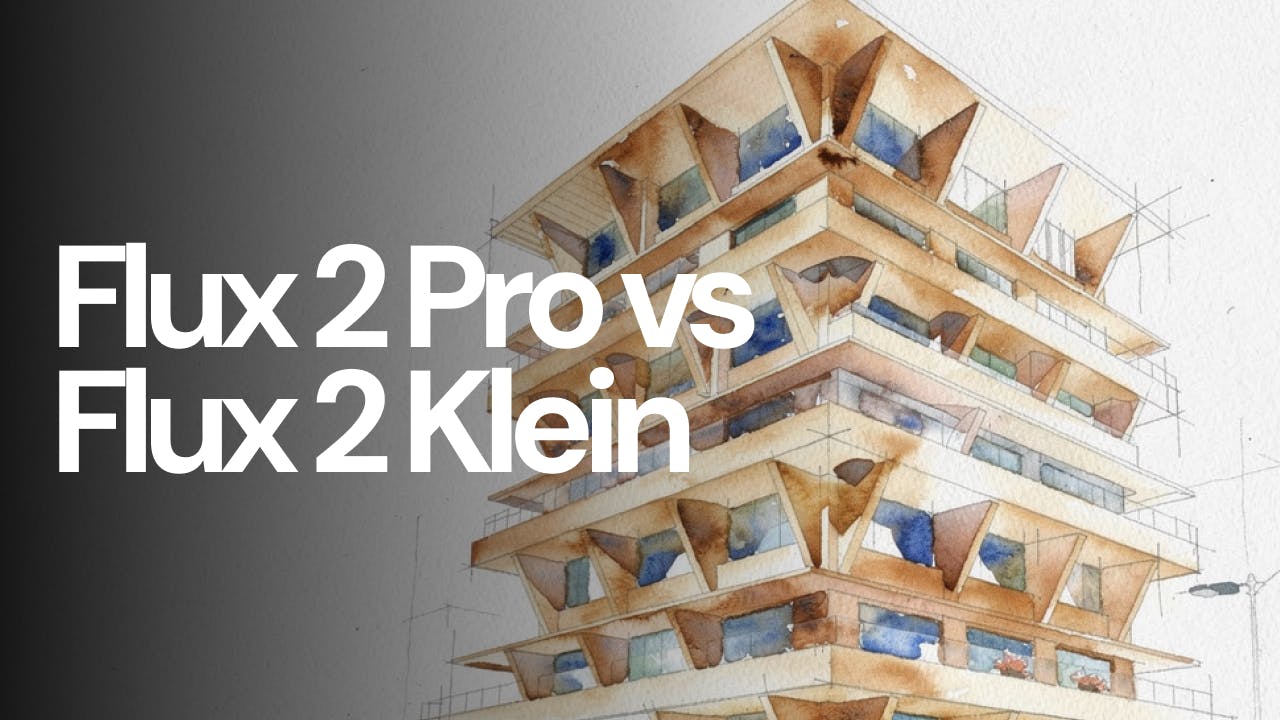Illustrate from 3D. Present with intent.
Use Fenestra to generate illustrations from renders, models, or screenshots.

Shaun McCallum
July 28, 2025A lot of you have been asking how to turn 3D models or renders into stylised architectural illustrations with Fenestra.
The short answer: it's easier than you'd think.
Whether you’re working in SketchUp, Rhino, Revit, ArchiCAD - or already rendering within Fenestra - you can quickly generate illustrative visuals that look hand-drawn, diagrammatic, or conceptually rich, without redrawing anything. In any style.
Here’s how it works and a quick walkthrough on how to do it yourself:
Start with Your Base
Import your 3D Model, Render or Screenshot to get started.
You can begin with:
- A rendered image (from Fenestra or any other tool)
- A 3D model (FBX, GLB, or 3DM)
- Or even just a screenshot from your modelling software
Drop it into Create Mode.
Then select the Illustration Preset Workflow. This preset is tuned for stylised outputs, and it applies a the Generation Style across all aspects of the image, to push your image toward more illustrative form.
Configure Your Workflow
Once your image or model is on the canvas, open Advanced Settings.
This is where you control how the AI interprets and transforms your base image:
- The Generation Style controls the overall tone - it is your overall image style, select Illustration. The value can be tuned to be less impactful or more impactful from 0 - 1.
- You’ll also see a field for a Reference Image, which can be used to guide colour, line weight, and form. This is the best way to control unique illustration styles.
You can get good results just by selecting the preset and hitting generate, but to dial it in, you'll want to use a reference.
Values I use often:
- Reference Image: 0.7
- Generation Style : 0.3
Add A Reference Image
Reference images help Fenestra better understand your intended style.
You can use parti diagrams, exploded axons, collage compositions, or minimal linework images - anything that captures the tone or graphic language you're going for. Fenestra provides a number of references in the app already and you can upload your own for more unique results.
Protip: If you use photoreal references you’ll create hybrid illustrative photographic images.
Once you’ve added references, you can adjust:
- Reference Strength – how much the final image should resemble your reference
- Generation Style Strength – how aggressively the AI tries to stylise the output
- Prompt (optional) – add a short text prompt to further direct the outcome if needed
Even without a prompt, the style model and reference often do enough to transform the image. But if you’re looking for something more specific - like “monochrome sketch with strong shadow massing” - prompting gives you a little more control.
Just keep in mind: the model might occasionally hallucinate details - extra windows, shifted geometry, etc. This usually happens when the style strength is too high. Dial it back, or clean up the result afterward.
Clean It Up
If the output isn’t quite there, use Edit Mode to refine it. You can correct AI artefacts, remove unwanted elements, or sharpen key areas.
For finer control, you can always export and touch up the image in Photoshop especially useful if you need something completely polished for publication or a pitch.
Give it a go - no redrawing, no extra setup.
Ready to illustrate your own visuals?
Illustrate NowRelated Articles

5 AI Interior Design Prompts That Actually Work
Most AI prompts for interior design return generic, flat rooms. These 5 are the ones I actually use - and they work across Flux, Nano Banana Pro, and everything else.

Wake Up New Seedance + Qwen Dropped
Seedance 1.5 Pro and Qwen Image Edit 2511 have just landed in Fenestra, unlocking a smoother way to edit, animate, and bring images to life with sound.

Flux 2 Pro vs Flux 2 Klein
Flux 2 Klein and Flux 2 Pro are both available in Fenestra, but they are designed for different moments in the design process. This short comparison looks at speed, cost, and visual quality to help you decide which model to use and when.